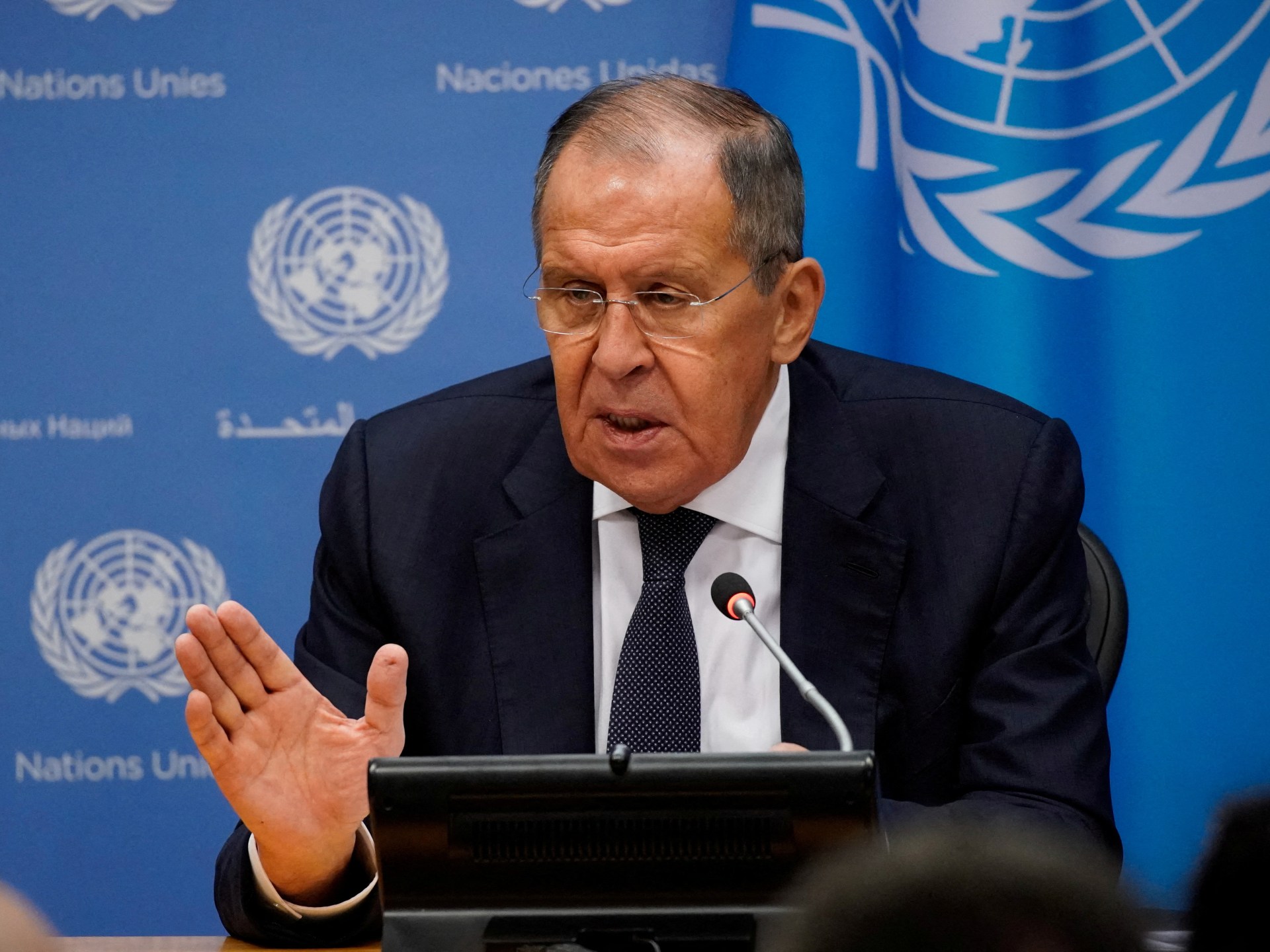Ministers of Estonia, Latvia, and Lithuania say presence of Sergey Lavrov risks legitimising Russian war in Ukraine.
The foreign ministers of three Baltic states have announced that they will boycott a meeting of the Organization for Security and Cooperation in Europe (OSCE) after Russian Foreign Minister Sergey Lavrov was invited to the event.
In a statement on Tuesday, the officials from Estonia, Latvia, and Lithuania said that a decision to invite Lavrov to attend the summit in Skopje risked legitimising Russia’s invasion of Ukraine.
“We deeply regret the decision enabling the personal participation of Russian Foreign Minister S. Lavrov at the 30th Session of the OSCE Ministerial Council in Skopje,” the statement reads.
“It will only provide Russia with yet another propaganda opportunity.”
Separately, Oleh Nikolenko, spokesman for the Ukrainian foreign ministry, wrote in a statement on Facebook that the Ukrainian delegation would not take part in the meeting.
Nikolenko said Russia had abused the rules of consensus in the organisation, resorted to “blackmail and open threats” and had also been holding three Ukrainian OSCE representatives in prison for 500 days.
“In such conditions, the presence of a Russian delegation … at minister-level for the first time since the start of Russia’s full-scale invasion of Ukraine will only deepen the crisis into which Russia has driven the OSCE,” he said.
There was no immediate comment from the Russian foreign ministry.
Decided together with @krisjaniskarins & @GLandsbergis to not attend the OSCE ministerial council in Skopje if Russia’s foreign minister Lavrov will participate.
My view: Lavrov belongs at a special tribunal instead of the OSCE table.
Our full statement:https://t.co/Dkb1gn9T71 pic.twitter.com/J60h9DsTkt
— Margus Tsahkna (@Tsahkna) November 28, 2023
The move comes as Ukraine’s Western allies sought to rally more support for Kyiv, as fighting continues with no clear end in sight.
Speaking before a gathering of NATO foreign ministers in Brussels, NATO chief Jens Stoltenberg urged members to “stay the course” in their support for Ukraine, as both the United States and European Union struggle to agree on further military aid.
The OSCE, a 57-member organisation first started during the Cold War with the goal of lowering tensions between East and West, has a rotating presidency currently held by North Macedonia, whose foreign minister invited Lavrov to the summit that is set to begin on Thursday.
Lavrov said on Monday that he would attend, in what would be his first trip to a NATO member since Russia launched its invasion of Ukraine in February 2022.
Speaking to reporters at NATO headquarters on Tuesday, North Macedonia’s Foreign Minister Bujar Osmani defended the decision and argued that the OSCE should be seen as a neutral forum.
“Lavrov is not coming to Skopje, in a way. Lavrov is coming to the OSCE just as he went to [the] UN in New York a few months ago,” Osmani said. “I won’t be meeting him as the foreign minister of North Macedonia, but as the OSCE chairman in office.”
However, Osmani also took a firm stance on Ukraine, saying that he would tell Lavrov that “we have turned [the] OSCE into a platform for political and legal accountability of the Russian Federation for its deeds in Ukraine, and we will continue to do so”.
Check out our Latest News and Follow us at Facebook
Original Source

